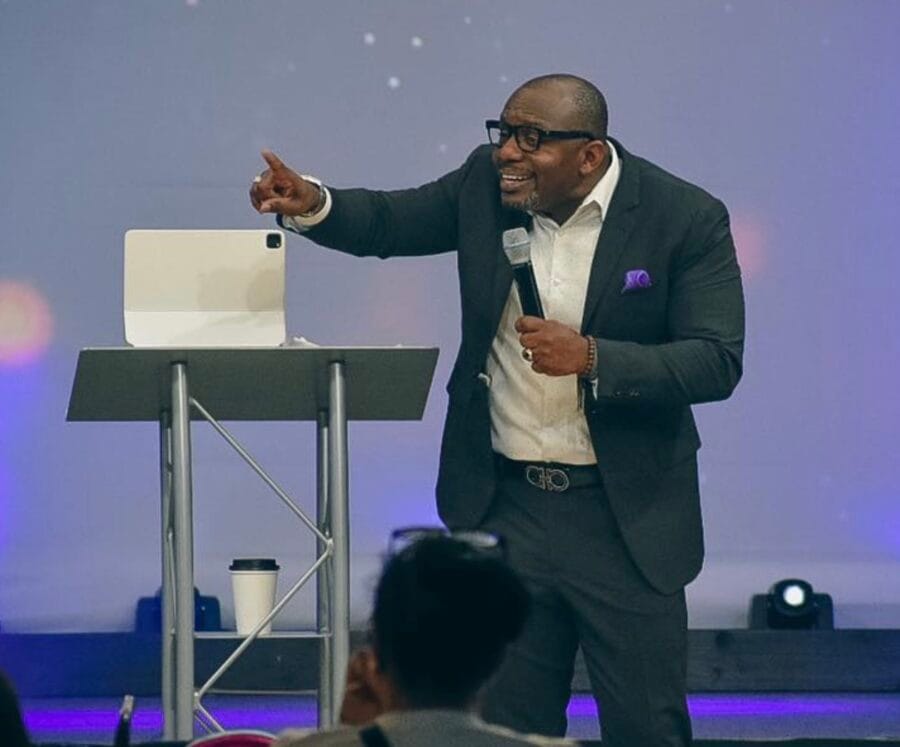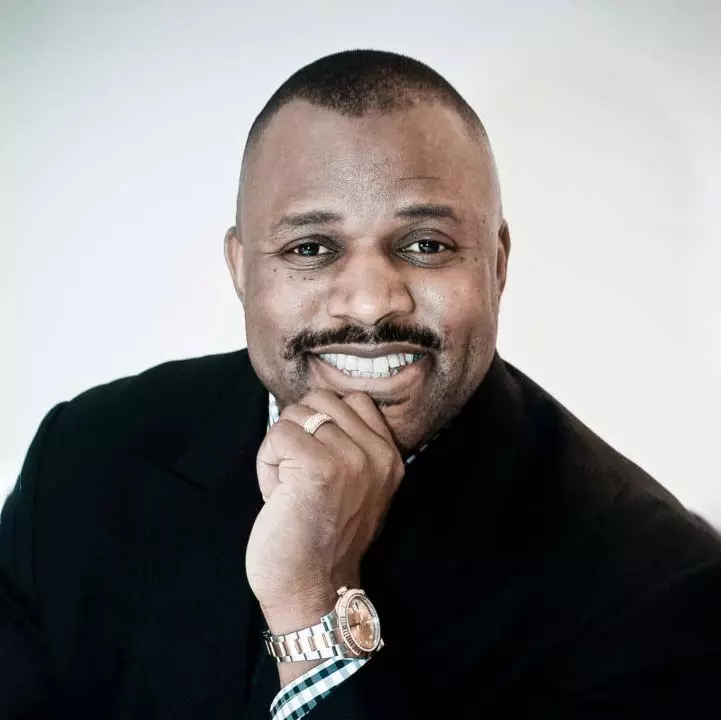Francier Obando Pinillo, pastor of Tiempo de Poder Church (Power Time Church) in Pasco, Washington, stands accused of bilking almost $6 million from church members and other “investors” in a fake crypto investment scheme.
The former pastor of a Pasco church is accused of collecting $5.9 million from church members and others with guarantees of monthly returns as high as 40% from cryptocurrency investments.
But a new federal lawsuit says Francier Obando Pinillo never made the promised investments and trades in cryptocurrency on behalf of his customers, instead keeping the money for himself and his associates.
He was arrested in Miami on Dec. 5 after being indicted in U.S. District Court in Eastern Washington on 25 counts of wire fraud and one count of unlicensed money transmitting business.
In addition, the Commodity Future Trading Commission is suing Francier Obando Pinillo in U.S. District Court in Eastern Washington. The commission is an independent federal regulatory agency charged by Congress with the enforcement of commodity exchanges.
Pinillo was the owner and pastor of Tiempo de Poder Church in Pasco, with members who mostly spoke Spanish, from at least late 2021 to late 2023, according to a court document.
He continues to post videos to the church’s Facebook page, most recently from Florida. The church previously operated out of strip malls on Sylvester and Court streets in Pasco.
Pastor seeks investments in church
The lawsuit claims Pinillo targeted unsophisticated customers who had little or no experience in cryptocurrency transactions or the specific type of investment he said he would make, which involved commodity interest trading.
Court documents claim the alleged scheme involved parking or “staking” digital assets such as Bitcoin to collect rewards, which are typically more cryptocurrency, and then using liquidity to borrow for additional cryptocurrency to stake.
His solicitations for investments were almost entirely made in Spanish.
“As the pastor at his church in Pasco, Wash., and as a guest speaker at other churches, defendant (Pinillo) was able to reach a vast number of potential customers, who believed he was honest and trust-worthy,” according to the civil lawsuit.
At one mega-church in Florida he lectured the congregants on the importance of lifting themselves out of poverty and then pitched them on his investment scheme, saying they could earn as much as 34.9% a month on their investment, said the suit.
He also held seminars for potential investors, including at the Pasco Red Lion Hotel and Conference Center.
He said he was the chief executive of SolanoFi Entities, which operated an automated computer trading program, according the lawsuit.
The trading program did not exist, but investors he recruited were given access to fabricated, online account statements that showed balances increasing monthly, according to the suit.
One customer invested about $36,000 in March 2022 and her balance sheet showed that had grown to more than $1 million by February 2023, said the lawsuit. She was able to log onto a website until as late as summer 2023 to see her purported balance.
….
Pinillo falsely told customers there was no risk to their investments and that they could withdraw their money in as short a time as three months, said the civil lawsuit.
His top guaranteed profit of 34.9% compounded monthly, if true, would have yielded profits on a 24-month basis exceeding 400,000%, “an impossibly high return on any investment,” according to a court document.
To attract additional assets from customers, he solicited investments in a purportedly “Christian-values” oriented token called the “ShekkelCoin.”
He told investors he would pay a 15% referral fee to those who referred additional customers.
He also asked for a $1,500 maintenance fee to access the SolanoFi website with account dashboards and another $1,500 fee to support purported legal efforts to recoup assets from a bankrupt crypto-exchange that Pinillo falsely claimed had held a large amount of customer assets, according to the civil lawsuit.
….
SolanoFi or Solano Fi, Solano Capital Investments and Solano Partners LTD, all sole proprietorships operated by Pinillo, were not registered with the Commodity Futures Trading Commission.
Pinillo also did not hold money transmitter license from the state of Washington, nor was Solano Fi registered federally as a money transmitting business, according to a court document.
Pinillo told customers to transfer cash to bank accounts he controlled or transfer cash or digital assets to digital wallets he also controlled to allow them to earn “interest” from staked digital assets, according to court documents.
….
He transferred at least $4 million in digital assets to 23 private digital wallets in Colombia with no known connection to trading commodity interests, according to a court document.
Some money from Pinillo’s 1,516 investors from November 2021 through December 2023 may have been used for payments to earlier investors in the nature of a “Ponzi” scheme, according to the suit.
But Pinillo also is accused of coming up with reasons why he could not immediately pay out profits to investors.
In March 2022, he posted online that there were technical issues with the SolanoFi dashboard used to account balances, according to a court document. However, customers would continue to receive profits and interests on their investments, the notice said.
….
When the digital asset exchange FTX became insolvent in late 2022 and declared bankruptcy, Pinillo told customers that their assets were sent to FTX and were now frozen. That prevented him from returning money immediately, he said.
Pinillo had not used FTX for any of his customers’ investments and neither he nor his companies are listed as creditors in the FTX bankruptcy.
One customer met with Pinillo at the Pasco church in October 2022, and begged for the return of her money, said the suit.
Pinillo told her he didn’t have any money and that he was busy, according to a court document. The woman has yet to receive any of her money back, according to the lawsuit.
When another customer confronted him, Pinillo told him that he would never be arrested because investors did not physically hand him money but instead transferred it to accounts he designated, according to a court document.
One Tri-Cities area woman who asked to withdraw money from her accounts, received only $18 when Pinillo recorded her making a withdrawal so he could market his investment platform on social media, according to a court document.
Another woman who sometimes attended Pinillo’s Pasco church invested $10,762 in Solano Fi.
He refused to pay back the initial investment and profits she believed she had accrued, but told her if she found someone to buy out her account, he would give her the money, according to a court document.
She took him to small claims court and won a judgment of $10,000, which remains unpaid, according to the criminal complaint against Pinillo.
Pinillo continues to post short Spanish-language videos on his church and his personal Facebook pages with his prophesies.
In some of the recent videos, he said that God will create grand miracles for his followers, including future financial wealth. He also posts graphics with his own quotes about faith and God.
The 25 counts of wire fraud each carry punishments of up to 20 years imprisonment and fines of up to twice as much money as Pinillo is found to have diverted. The unlicensed money transmitting business charge is punishable by up to five years in prison.



